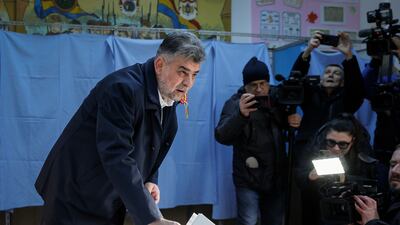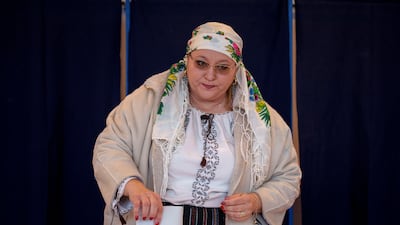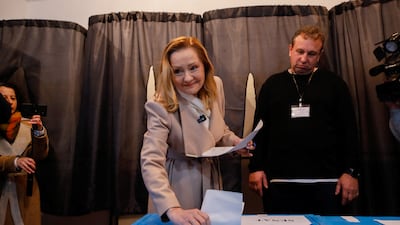Early exit polls after a parliamentary election in Romania on Sunday show the country's ruling leftist Social Democrats (PSD) looking set to win the most votes, defeating a resurgent far-right movement challenging the country's pro-western stance.
Sunday's vote is the second of three consecutive ballots for a new parliament and president, with an independent far-right candidate, Calin Georgescu, emerging from relative obscurity to become the front-runner in the first round of the presidential election on November 24.
Mr Georgescu's unexpected win ushered in support for ultranationalist, hard-right parties, some with pro-Russian opinions, which political analysts said could undermine Romania's backing for Ukraine.
If the exit polls are confirmed by official results, a pro-western coalition led by the PSD would probably have enough seats in Parliament to form a government, although the far right would be a substantial force.
But the polls do not include the votes of the hundreds of thousands of Romanians working abroad, who are expected to favour far-right groupings and a centrist opposition party led by presidential runner-up Elena Lasconi.

A broad coalition would also be difficult to form amid disagreements over the measures needed to rein in the country's budget deficit, now the highest in the EU at 8 per cent of economic output.
"The Social Democrats will take a few days and wait to be courted," said political commentator Radu Magdin. "A coalition with centrist parties is more likely than with the hot-potato extremists. And much depends on who becomes president."
Exit polls showed the PSD winning 26 per cent of votes, ahead of the hard-right Alliance for Uniting Romanians on 19 per cent.
Social Democrat Prime Minister Marcel Ciolacu came third in the presidential ballot first round after a campaign dominated by voters' concerns over the cost of living and anger at mainstream parties' infighting and corruption allegations.

Under Romanian rules, the president designates a prime minister, who then forms the government.
Romania's top court on Friday postponed a decision on whether to annul the first round of the presidential vote until December 2, after the shock result caused suspicions of interference in the campaign.
Romanian authorities say they have found evidence of meddling by hostile actors, and the Constitutional Court has not yet validated the results.
The court has ordered a recount of the 9.46 million votes cast in the first round while also considering the request to annul the first-round vote.
If a rerun is decided, the first round of voting in the presidential election could take place on December 15 and the run-off could be on December 29.













